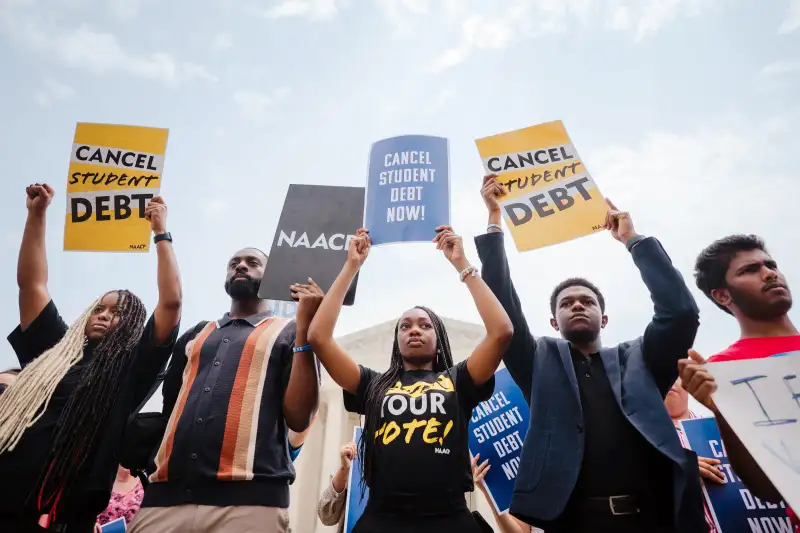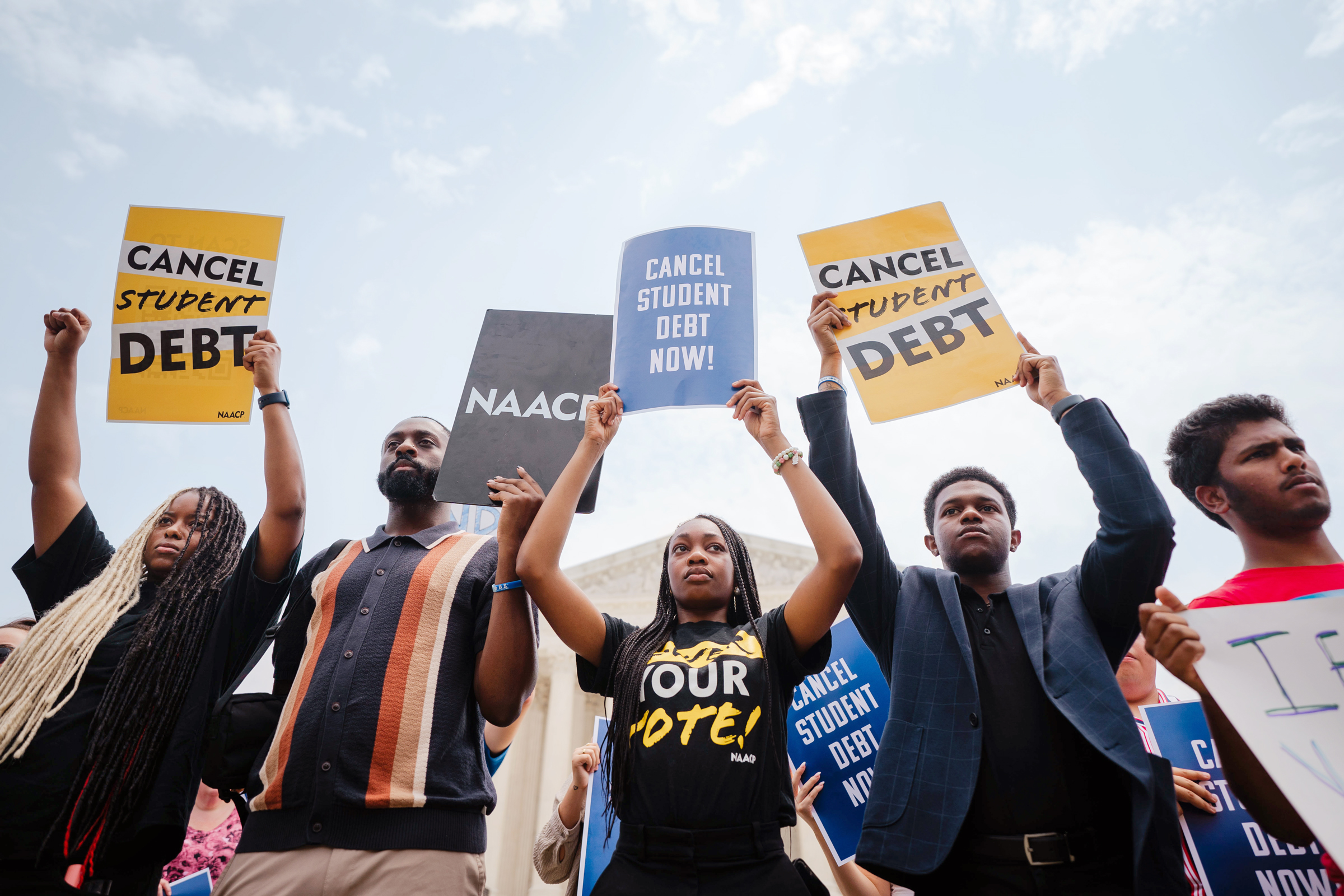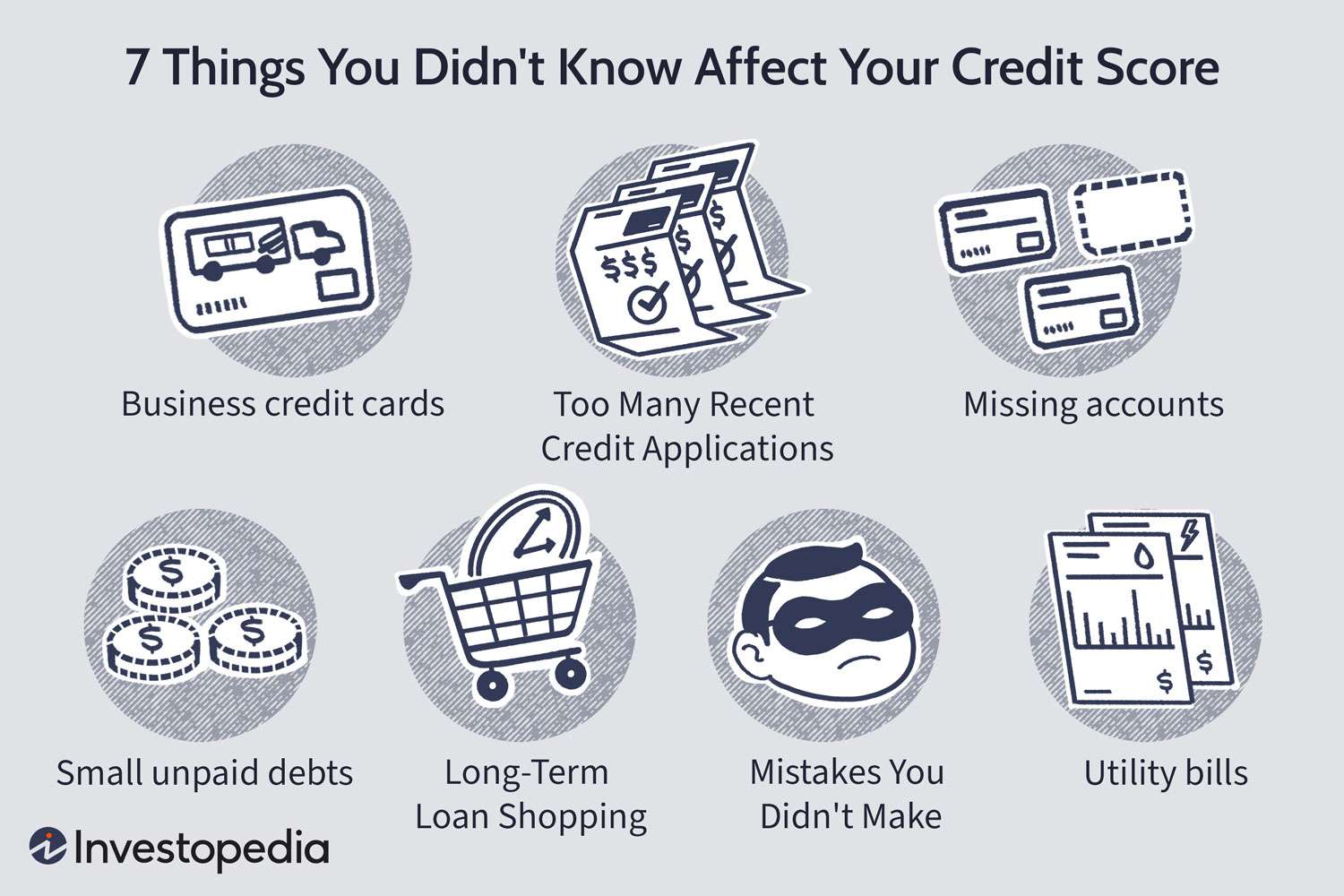What Happens If You Don’t Pay Student Loans? Discover the Consequences Now!
Defaulting on student loans can have serious consequences. Your credit score will be negatively affected, making it harder to secure future loans or credit cards.
You may face wage garnishment, tax refund interception, and legal action from the loan servicer. It’s crucial to make timely payments or explore alternative options like loan forgiveness or income-driven repayment plans to avoid these repercussions.
:max_bytes(150000):strip_icc()/buy-now-pay-later-5182291-final-4dcaa9bea32a4aa398eb99e5ca5406bb.png)
Credit: www.investopedia.com
The Impact Of Unpaid Student Loans
Unpaid student loans can have significant consequences that go beyond financial hardship. Failing to meet your loan obligations can lead to lasting damage to your credit score and even potential legal actions against you. Understanding the impact of unpaid student loans is crucial for anyone struggling to make their payments. In this section, we will explore the two main consequences that borrowers may face when their student loans go unpaid: credit score damage and the possibility of legal actions.
Credit Score Damage
One of the most immediate concerns when it comes to unpaid student loans is the negative impact on your credit score. Your credit score is a three-digit number that lenders use to determine your creditworthiness. It reflects your ability to manage debt responsibly and plays a significant role in future financial decisions, such as securing a mortgage, a car loan, or even renting an apartment.
When you start missing payments on your student loans, your credit score takes a hit. The exact effect can vary depending on factors like the amount of outstanding debt and the length of delinquency. However, it’s crucial to understand that even a single missed payment can have lasting consequences.
Here’s how unpaid student loans can affect your credit score:
- The delinquency is reported to the credit bureaus, and it stays on your credit report for seven years.
- Your credit score is likely to drop, making it harder for you to qualify for new credit or favorable interest rates.
- Defaulting on your loans may lead to collections agencies getting involved, further damaging your creditworthiness.
As you can see, not paying your student loans can have a long-lasting impact on your ability to access credit and obtain favorable terms in the future. Ignoring the problem will only exacerbate the situation and make it harder to recover your financial stability.
Legal Actions
Aside from credit score damage, unpaid student loans can eventually result in legal actions being taken against you. Although this may not happen immediately, lenders have legal remedies available to them to collect the money owed.
Here are some possible legal actions that can be taken for unpaid student loans:
- Garnishment of wages: Lenders may seek a court order to have a portion of your wages withheld directly from your paycheck.
- Tax refund offset: The government can intercept your tax refund and apply it towards your outstanding student loan debt.
- Lawsuits: Lenders may sue you in court to obtain a judgment, allowing them to collect the debt through additional means like seizing assets or placing liens on property.
It’s essential to note that the consequences of legal actions can vary depending on your specific situation and the laws of the state you reside in. However, it’s best not to wait around and find out. Seeking help and exploring your options as soon as you face difficulties in making your student loan payments is the best course of action.

Credit: money.com
Deferment And Forbearance Options
When it comes to student loans, it’s important to be aware of the consequences of not paying them back. However, if you find yourself in a situation where you’re unable to make your monthly payments, there are options available to provide temporary relief. Two such options are deferment and forbearance.
Temporary Relief
Deferment and forbearance are both programs that allow you to temporarily suspend or reduce your student loan payments. This can provide much-needed financial relief during times of financial hardship or when you’re facing unexpected expenses.
Qualifications And Application Process
To qualify for deferment or forbearance, you’ll need to meet certain criteria determined by your loan servicer. For deferment, eligibility requirements can include being enrolled at least half-time in school, serving in the military or Peace Corps, or experiencing unemployment or economic hardship.
For forbearance, eligibility can be based on factors such as financial hardship, illness, or other unforeseen circumstances. It’s important to note that interest may continue to accrue during periods of deferment or forbearance, which means your loan balance may increase.
When applying for deferment or forbearance, you’ll need to communicate with your loan servicer and provide the necessary documentation to support your request. This can include proof of enrollment, employment verification, or medical records, depending on the type of deferment or forbearance you’re applying for.
Once your application is reviewed and approved, your loan servicer will notify you of the terms and conditions of the deferment or forbearance period. It’s crucial to thoroughly understand the terms and continue to stay in contact with your loan servicer to ensure compliance and avoid any negative consequences.
In conclusion, deferment and forbearance options can provide temporary relief if you’re unable to pay your student loans. Understanding the qualifications and application process is essential to take advantage of these programs effectively. However, it’s important to keep in mind that while deferment and forbearance can offer temporary financial relief, they may not be a long-term solution and can potentially increase your overall loan balance.
Repayment Alternatives
Income-driven Repayment Plans
Income-Driven Repayment Plans offer relief for borrowers struggling to make their federal student loan payments. These plans base the monthly payment on the borrower’s income and family size, making it more manageable. The four main income-driven plans include: Income-Based Repayment (IBR), Pay As You Earn (PAYE), Revised Pay As You Earn (REPAYE), and Income-Contingent Repayment (ICR). Each plan has specific eligibility criteria and varying terms to consider.
Loan Consolidation
Loan consolidation combines multiple federal student loans into a single loan with a single monthly payment. This approach may simplify loan management and potentially lower the monthly payment by extending the repayment term. Additionally, borrowers can lock in a fixed interest rate, protecting themselves from future rate increases. However, it’s crucial to evaluate the potential trade-offs, including extended repayment, accruing more interest, and losing certain borrower benefits.
Avoiding Default
When it comes to student loans, avoiding default is essential. Defaulting on your student loans can have serious consequences, including damage to your credit score and increased financial burden. In order to steer clear of default, there are a few key strategies you can employ.
Budgeting And Financial Planning
One of the most important steps you can take to avoid defaulting on your student loans is establishing a budget and practicing sound financial planning. By creating a monthly budget, you can identify how much money is available to put towards loan payments. This helps ensure that you allocate the necessary funds to repay your loans on time.
To create a budget, start by listing all of your monthly income sources and fixed expenses, such as rent or mortgage payments, utilities, and transportation costs. Next, factor in your variable expenses, such as groceries, entertainment, and discretionary spending. Subtracting your expenses from your income will give you a clear picture of your available funds.
Tip: Prioritize your student loan payments in your budget, treating them as a necessary expense. By doing so, you minimize the risk of defaulting due to insufficient funds.
Communication With Lenders
Open and honest communication with your lenders is crucial when it comes to avoiding default on your student loans. If you’re experiencing financial hardship or struggling to make your monthly payments, don’t ignore the problem.
Reach out to your loan servicer as soon as possible to discuss your situation. Many lenders offer flexible repayment options, such as income-driven repayment plans or deferment, which can provide temporary relief if you’re facing financial difficulties. Ignoring the issue will not make it go away; instead, it can lead to default.
Tip: When communicating with your lenders, keep a record of all conversations, including dates, names, and details discussed. This can help ensure that you have accurate information and documentation for future reference.
Seeking Help And Support
If you find yourself struggling to repay your student loans, it’s important to remember that you’re not alone. There are resources available to help you navigate through this challenging situation. Seeking assistance from financial counselors and utilizing the services of a student loan ombudsman can provide you with the guidance and support you need.
Financial Counselors
If you’re feeling overwhelmed by your student loan debt, reaching out to a financial counselor is a wise step to take. These professionals specialize in helping individuals manage their finances and can offer valuable insights and strategies to tackle your debt load. They can provide you with expert advice on budgeting, loan repayment options, and even potential ways to reduce your overall debt burden.
A financial counselor can assess your current financial situation and work with you to develop a customized plan to get your student loans back on track. Whether it’s creating a realistic budget, exploring income-driven repayment plans, or negotiating with lenders on your behalf, their expertise can make a significant difference in alleviating your financial stress.
Student Loan Ombudsman
In addition to seeking assistance from financial counselors, another valuable resource available to you is a student loan ombudsman. In simple terms, an ombudsman is an impartial advocate who helps resolve disputes between individuals and organizations.
When it comes to student loans, a student loan ombudsman can investigate and address your concerns about loan servicers, lenders, or the loan repayment process. They can help you resolve issues related to repayment plans, loan forgiveness, collection practices, and more. Their goal is to ensure fairness and provide guidance, helping you find viable solutions to your loan repayment challenges.
If you’re feeling overwhelmed or like you’ve run out of options, it’s important to remember that help is available. Don’t hesitate to reach out to financial counselors and student loan ombudsman for the support you need to navigate through the complexities of student loan repayment.

Credit: money.com
Frequently Asked Questions Of What Happens If You Don’t Pay Student Loans?
What Happens If You Don’t Pay Student Loans?
If you don’t pay your student loans, you may face serious consequences. Your credit score will be severely impacted, making it difficult to borrow for a car or a mortgage. The government may take legal action to collect the debt, including garnishing your wages or seizing your tax refunds.
Additionally, your professional license could be at risk, and you may lose eligibility for future financial aid. It’s important to communicate with your loan servicer to explore repayment options if you’re facing financial hardship.
Conclusion
Not paying off student loans has serious consequences. It can lead to damaged credit, wage garnishment, or even legal action. Understanding the repercussions of defaulting on student loans is crucial. By staying informed and proactive, borrowers can prevent these negative outcomes and find solutions to manage their loan obligations.
{ “@context”: “https://schema.org”, “@type”: “FAQPage”, “mainEntity”: [ { “@type”: “Question”, “name”: “What happens if you don’t pay student loans?”, “acceptedAnswer”: { “@type”: “Answer”, “text”: “If you don’t pay your student loans, you may face serious consequences. Your credit score will be severely impacted, making it difficult to borrow for a car or a mortgage. The government may take legal action to collect the debt, including garnishing your wages or seizing your tax refunds. Additionally, your professional license could be at risk, and you may lose eligibility for future financial aid. It’s important to communicate with your loan servicer to explore repayment options if you’re facing financial hardship.” } } ] }
